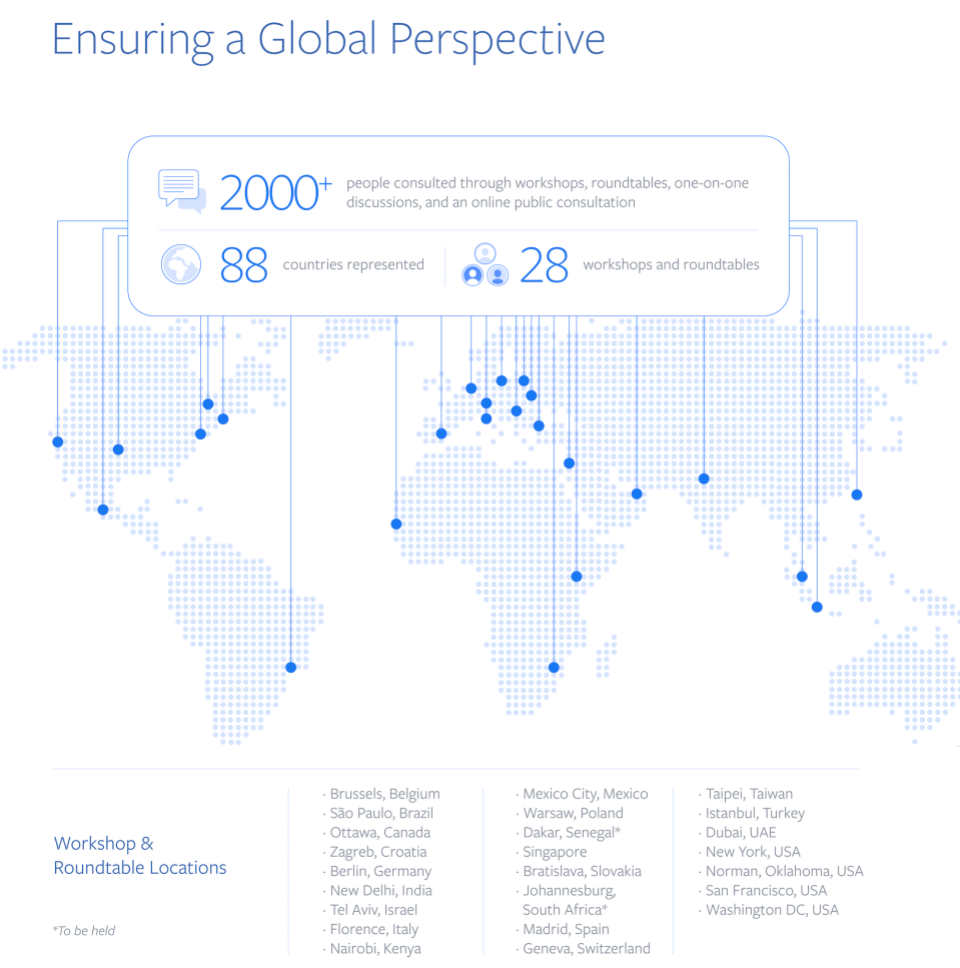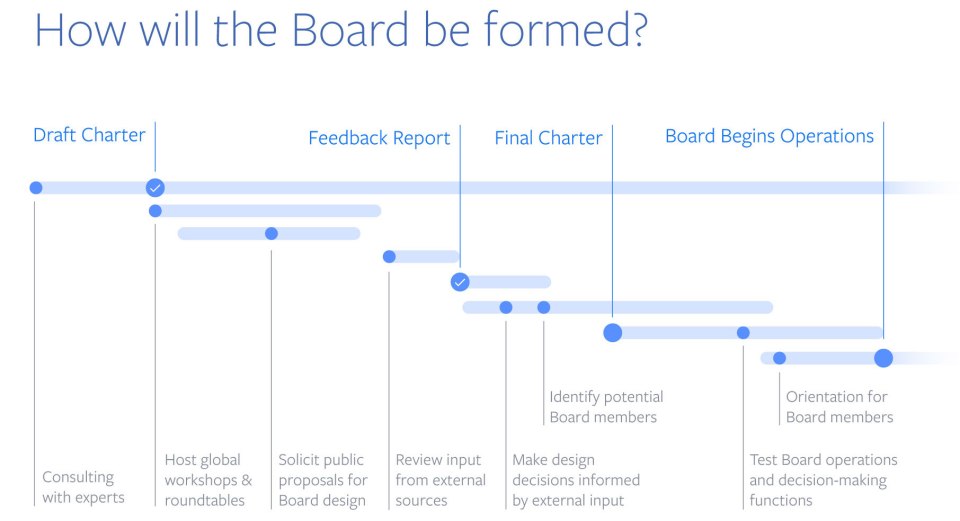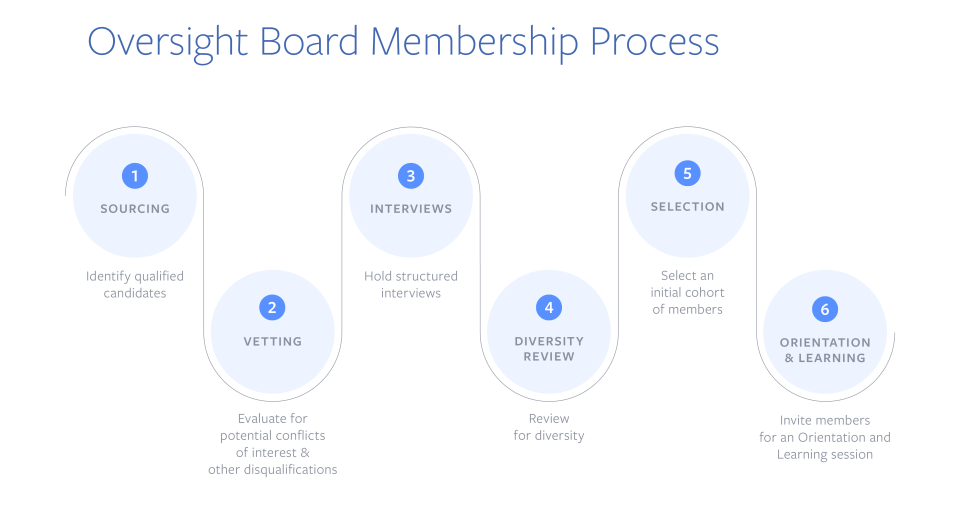Note: For future Facebook updates about Oversight Board cases, please visit the Transparency Center.
In November, Mark Zuckerberg laid out a plan for a new way for people to appeal content decisions through an independent body. Earlier this year we released a draft charter outlining a series of questions that we wanted to answer through a global input process, including public consultation, to form that body.
Since that time we have traveled around the world hosting six in-depth workshops and 22 roundtables attended by more than 650 people from 88 different countries. We had personal discussions with more than 250 people and received over 1,200 public consultation submissions. In each of these engagements, the questions outlined in the draft charter led to thoughtful discussions with global perspectives, pushing us to consider multiple angles for how this board could function and be designed.
Today, we are releasing a report with appendices that summarize all of the feedback and recommendations we heard through those conversations, workshops and roundtables; internal research; white papers; media reports; and public proposals.
There are some general themes we have heard during consultation that are echoed in the report.
- First and foremost, people want a board that exercises independent judgment — not judgment influenced by Facebook management, governments or third parties. The board will need a strong foundation for its decision-making, a set of higher-order principles — informed by free expression and international human rights law — that it can refer to when prioritizing values like safety and voice, privacy and equality.
- Also important are details on how the board will select and hear cases, deliberate together, come to a decision and communicate its recommendations both to Facebook and the public. In making its decisions, the board may need to consult experts with specific cultural knowledge, technical expertise and an understanding of content moderation.
- And people want a board that’s as diverse as the many people on Facebook and Instagram. They would like board members ready and willing to roll up their sleeves and consider how to guide Facebook to better, more transparent decisions. These members should be experts who come from different backgrounds, different disciplines, and different viewpoints, but who can all represent the interests of a global community.
As we close this period of consultation and turn our attention to getting this up and running, including deciding on membership of the board, the feedback from the report will be used to answer the questions that were first posed in the draft charter. These answers will be released in a final charter that will govern the work of the board and will be released in August.
We’re continuing to consider who will serve on the 40-person board. This process will include sourcing, vetting, interviewing, selecting and providing training for members. In sourcing potential candidates, we have been soliciting suggestions from those who have participated in the public consultation process and the in-person workshops and roundtables. In addition we have been engaging consultants and executive search firms, and will soon be opening a nomination process. We want to make sure that we’re casting a wide net, not just looking to those experts who may already be known to us. Facebook will select the first few people and those members will then help select the remaining people.
Graphic updated on September 16, 2019 to reflect our latest process.
For more on this topic, Mark is releasing the next video in his series of discussions on the future of technology and society. He sat down with Jenny Martinez, Dean of Stanford Law School and Noah Feldman, a professor at Harvard Law and advisor on the Oversight Board to discuss governance and what that looks like for the technology industry.






